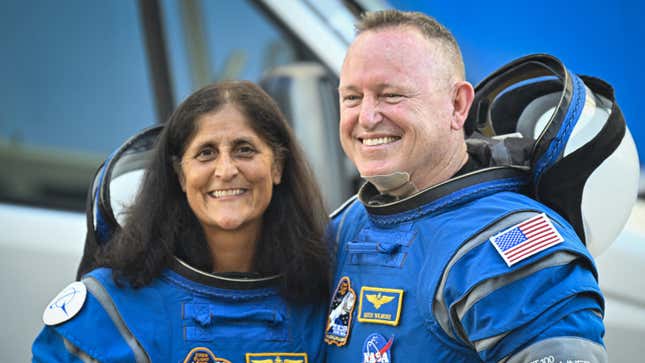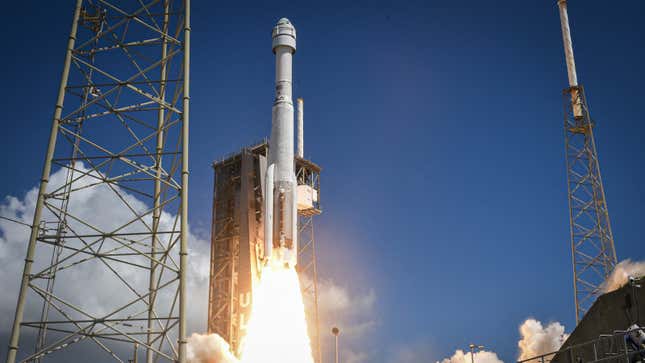Boeing’s first foray into manned house flight has been an unmitigated cock up. Starliner launched to the Worldwide Area Station with two astronauts onboard in June and landed again on Earth two months later with out them after points had been uncovered with the craft. Now, extra issues have surfaced throughout Starliner’s return, reaffirming NASA’s determination to not belief it with the lives of Butch Wilmore and Suni Williams.
Starliner landed again on Earth this weekend, virtually three months later than it was initially scheduled to the touch again on terra firma. The delay in its return follows points that arose with the craft’s thrusters throughout it’s docking with the ISS, in addition to different issues that had been uncovered whereas the ship was in house.
The issues with Starliner left NASA with no selection however to go away astronauts Wilmore and Williams up on the ISS as they didn’t consider it was protected bringing them dwelling on Starliner. As a substitute, they’ll hitch a experience dwelling on a SpaceX ship subsequent 12 months, leaving them in orbit for nearly eight months, as a substitute of the eight days initially deliberate.

That call is trying like a protected guess now, as Futurism experiences that additional points arose with Starliner on its return to Earth this weekend:
Indicators on the capsule’s return had been blended. On the one hand, in accordance with NASA’s business crew program supervisor Steve Stich, it pulled off a “bullseye touchdown.” On the opposite, the company admitted {that a} new thruster had failed throughout its descent. The capsule additionally skilled a brief blackout of Starliner’s steering system throughout reentry.
It’s a clumsy state of affairs for the house company: would Starliner have been capable of ferry NASA’s lacking crew members ultimately?
“I feel we made the precise determination to not have Butch and Suni on board,” Stich informed reporters on Saturday. “All of us really feel completely satisfied in regards to the profitable touchdown. However then there’s a bit of us, all of us, that we want it could have been the way in which we had deliberate it.”
Questions arose about Starliner’s situation after 5 out of 28 thrusters failed when it docked with the ISS again in June. Within the months that adopted, engineers found that the failure was because of overheating in sure elements, which isn’t a great look on a rocket engine that *checks notes* burns stuff as a part of its job.

Due to this and the acute circumstances the craft would expertise throughout re-entry, NASA determined to not carry it again to Earth with Wilmore and Williams onboard, regardless of Boeing’s claims that it could be protected. This differing opinion is just highlighting the chasm that exists between Boeing and NASA proper now, experiences Ars Technica:
Three NASA managers, together with Stich, took questions from reporters in a press convention early Saturday following Starliner’s touchdown. Two Boeing officers had been additionally presupposed to be on the panel, however they canceled on the final minute. Boeing didn’t clarify their absence, and the corporate has not made any officers obtainable to reply questions since NASA selected to finish the Starliner check flight with out the crew aboard.
“We view the information and the uncertainty that’s there in a different way than Boeing does,” stated Jim Free, NASA’s affiliate administrator, in an August 24 press convention saying the company’s determination on how one can finish the Starliner check flight. It’s uncommon for NASA officers to publicly talk about how their opinions differ from these of their contractors.
Joel Montalbano, NASA’s deputy affiliate administrator for house operations, stated Saturday that Boeing deferred to the company to debate the Starliner mission within the post-landing press convention.
NASA was scheduled to function additional Starliner launches in collaboration with Boeing, with the following at present tentatively scheduled for August 2025. Nevertheless, there’s no certainty over that now as questions swirl about Boeing’s ambitions for house flight going forwards.


